We’re breaking down the top ten things that new scuba divers get wrong. Usually, through no fault of their own; there’s no shame here.
It’s the little things and idiosyncrasies that aren’t necessarily taught in your foundational course and unless you’re a savant, chances are that something is going to break or go wrong for you to find some of these out on your own…
Watch Video
Leaving Your Cylinders Standing Upright
Leaving your cylinders standing upright. This is a tricky one because in some circumstances you are supposed to leave your tanks upright and a lot of cylinders have flat bottoms so that they can stand up and the ones that don’t have a rubber boot so that they can stand up…
The thing to remember is that you shouldn’t leave a cylinder standing upright unattended and unsecured. On a boat that rocks and uneven ground it’s easy for tanks to fall over.
Because they’re tall and heavy, and often have a lot of your expensive dive equipment attached to them, cylinders can fall over and damage themselves, your dive kit and whatever they land on, which is either the deck or your foot.
If you’re handling cylinders, lay them down as much as possible and, better yet, strap them down. If there’s some kind of cradle or strap to hold the cylinder upright, that’s fine, but never leave a cylinder standing upright where it might topple over. And if there is a way to lash it to a rail or something, make sure it’s tight so the tank doesn’t rock and break free.
Not Preparing Your Dive Mask Properly
Not preparing your dive mask properly, or enough. Dive masks when they’re brand new need to be prepared more than just spit or a quick rub with some defog gel. There are two stages to a fog-free mask; #1 with a brand-new mask you need an initial preparation to remove a film of release agent on the inside of the glass that causes the mask to fog up very quickly.
Now, there are a few ways to do this and most of them need to be repeated more than once to be effective.
This you only need to do when your mask is new and periodically throughout its life. The 2nd thing is preparing your mask right before the dive, and every single dive. Even after that initial preparation, a mask will still fog up, just not as easily.
Spit and other defog solutions on the inside of the lens help to create a new film that prevents water droplets from condensing. So, with any mask, even the most expensive ones; prepare it properly 1st and then defog it before every dive to prevent fogging.
Carrying Too Much Lead/weight
New divers often carry far too much lead on their weight belt. When most divers first start, they tend to hold a bit too much air in their lungs through apprehension. Your body is still telling you to hold your breath a bit underwater, and this can cause you to be a bit more buoyant.
As such, when you do your check dives and weight checks, you need more lead to get down and that amount sticks in your head as the amount of lead that you really need going forward.
However, as you progress and relax into scuba diving, you can leave a fair amount of lead behind and sink with less lead. It’s not just that it’s heavy, but carrying too much lead can increase your air consumption.
Because you put more air in your BCD and adjust your buoyancy more often to compensate for the extra lead, you’re wasting breathing gas on that extra lead. When you’re at dive 20, do a proper weight check and see just how much lead you can drop from your weight belt and still get down.
Not Respecting Your Boundaries
Not respecting your boundaries. Now, there’s an actual name for this, and it’s the Dunning Kreuger Effect. When you very first start out, you’re nervous so, you’re very cautious and less likely to get into certain trouble.
But, as you progress and gain confidence, you start to push your boundaries a little too far because, well, nothing bad has happened so far. But this is the point where you need to have the most respect for your boundaries.
Diving too deep or into overhead environments like shipwrecks and caves is very dangerous if you haven’t had the correct training, you don’t know about the inherent dangers of those places.
The important thing is to remain humble and if you want to dive in shipwrecks, caves, or dive down to deeper depths, then sign up for a course and do it properly. If you just do it yourself you can get yourself in trouble, and it’s not worth it, there’s a reason why these courses exist.
Succumbing To Peer Pressure
On a similar tack; succumbing to peer pressure. The only person that can make you go on a dive or go into a certain place underwater is you. If you don’t like the feel of the dive or a certain section, it’s up to you to just say no thanks and put your foot down.
And the flip side of that; if your buddy says no to something, honour that and don’t push the issue. If they don’t want to do it, just skip the dive or that section of the dive.
If you push the issue and go on a dive that you’re not comfortable with or go somewhere you’re untrained; then chances increase for something bad to happen again.
I’d far rather an inexperienced or unsure diver that I’m diving with being honest and say they don’t want to do something than we go on the dive and something bad happens. If you don’t want to do something, then, no means no.
Not Streamlining
Not streamlining yourself and your gear. A lot of scuba diving is about bringing redundant equipment for safety. But try to resist the temptation to bring absolutely everything from your kit bag with you on a dive.
While there is certain equipment that comes with me on every dive, other bits can be more dive specific and left behind. And you can’t, or shouldn’t, just clip everything off to a D-ring because you’re increasing your work in the water and the chances of something being damaged.
We actually have a term for this; Christmas tree diver, because you have everything dangling off you like a Christmas tree and they’re all flappy snag hazards that can get caught in things and tangle you up underwater.
Stowe things in pockets to keep yourself streamlined, reduce drag, and reduce the chances of your kit being damaged by hitting rocks and think properly if you’ll need to bring each piece of gear or if it’s just too excessive to bring it down with you.
Not Checking Gauges Enough or Being Honest About Gas Consumption
Not being honest about your gas consumption or checking your gauges often enough. I fully understand the social stigma of breathing more gas than your buddy. But honestly, nobody really minds if you’re a little low on gas from a short fill or breathing heavily but, it is important for us to know the correct information because we make plans on the go based on remaining gas pressures. Sure, we have contingencies, but those contingencies only work if everybody sticks to them.
That red zone on your SPG! It’s not an arbitrary amount of gas. It’s made so that two divers can complete a safety stop breathing from a single cylinder.
If you’ve not been honest about the amount of gas you have left and something wrong happens to your buddy’s gear, now you don’t have enough gas to complete a proper safety stop. It’s far better to just be honest and end the dive a little earlier, there’s always another dive if you miss out on something.
Not Paying Attention To Your Surroundings
Not paying attention to your surroundings. While diving and with all the gear a lot of new divers end up bumping into things and it’s mainly down to situational awareness and knowing what’s around you.
If you bump into something underwater, that can range from tapping your buddy with the tip of your fins or snapping off a piece of coral that’s taken hundreds of years to grow. Ideally, underwater the only thing you should touch is the ladder to get out.
Pay attention to the environment around you in front, side to side, above and below you as well as how things are moving so that current or surge won’t push you into anything and damage you or the reef. And don’t bunch up.
You have a huge ocean to dive in, don’t separate from your buddy but, don’t swim up too close to the diver in front of you. Just try to keep a good distance from other things in the water and have in your mind where things are in relation to you so that you don’t bump into things.
Not Equalizing Early or Often Enough
Not equalizing early or often enough. The best time to start equalizing your ears is in the car travelling to the dive site; that’s how early. If you’re five meters underwater when you start thinking about equalizing, that is far too late, and once you pass a certain depth, it can be impossible because the pressure imbalance can be holding the tube closed and no matter how much you pinch your nose and blow you won’t equalize your ears.
That’s why you’re taught to ascend a little and try again if you can’t equalize.
It’s not about how hard you equalize it’s how early you equalize. Before you jump in the water, and that starts to get things ready before the dive. As soon as your head drops below the water, start equalizing there.
You shouldn’t feel much of anything, and that’s the point. If you do feel any discomfort, then you’ve left it too late. For the first ten meters, equalize all the time. Generally, you can’t over-equalize
Not Asking Silly Questions
Not asking silly questions. I’ve done this one before. I stood opposite another diver before the dive and thought to myself if I should ask when the last time they tightened a fitting on their regulator that I knew was prone to disconnecting over time.
But I didn’t, and as if by murphy’s law, three minutes later, during the dive, the O-ring popped, and we aborted the dive there. Nobody was hurt, but it always sticks in my mind to always bring something up if I see it, just in case.
If you’re ever unsure about anything, or a thought pops into your mind, voice it out. It might just be the thing that makes somebody go: ‘huh, let me check that’. Or put your mind at ease. If there’s something troubling you, then the worst thing to do is clam up and try to ignore it. You’ll learn more by asking questions, and it might have a big difference down the road.
And that’s it for now; if I could ask something from you now, I see that an alarming percentage of you wonderful people out there are not subscribed to the channel so could you do me the favour of looking underneath this video and seeing if you are or are not subscribed and please do subscribe.
Every Saturday, we do a top 10 video from now on, whether that be the top 10 dive computers or the top ten mistakes that new divers make like this video and Sunday, we have our weekly podcast.

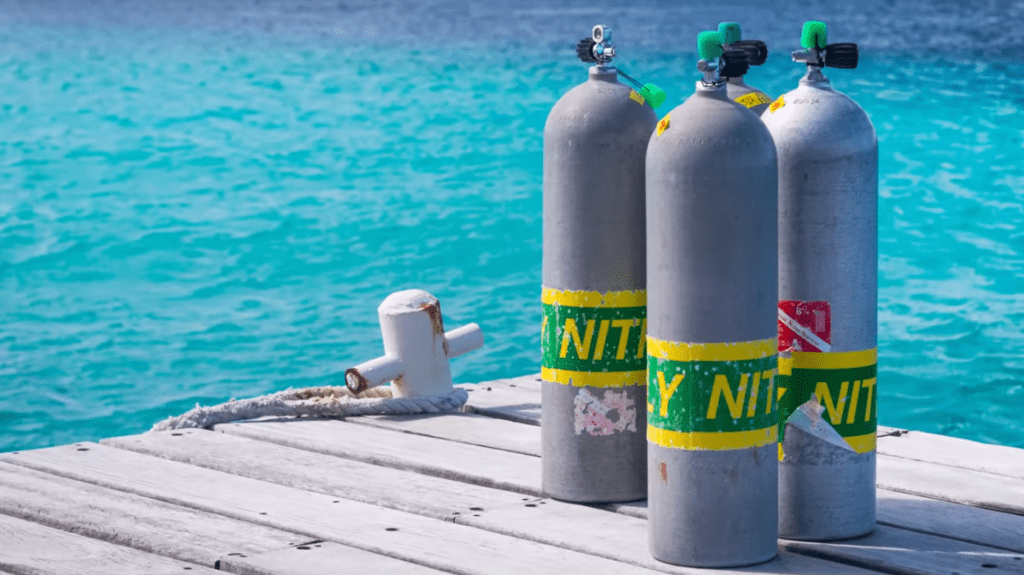
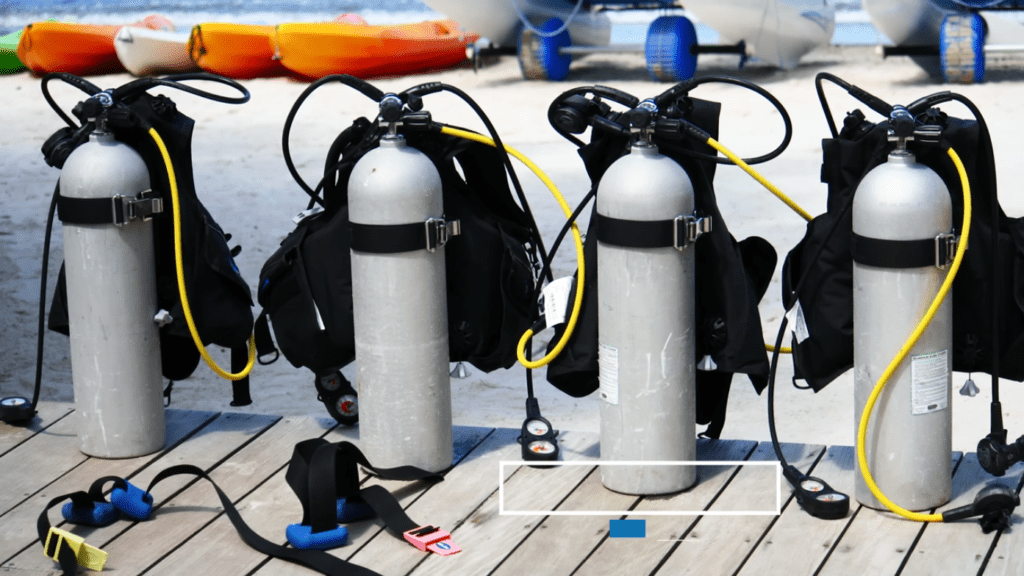
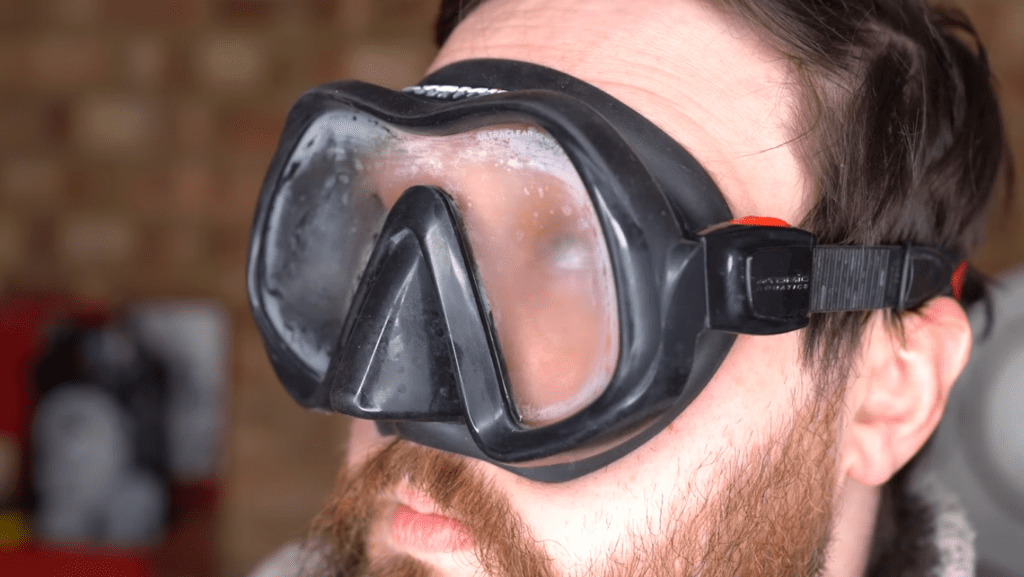
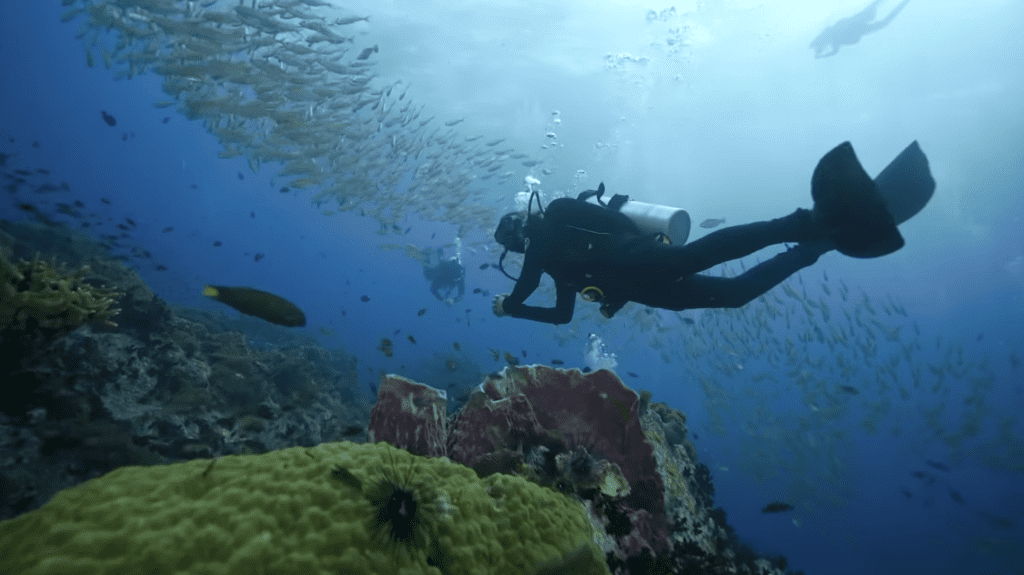
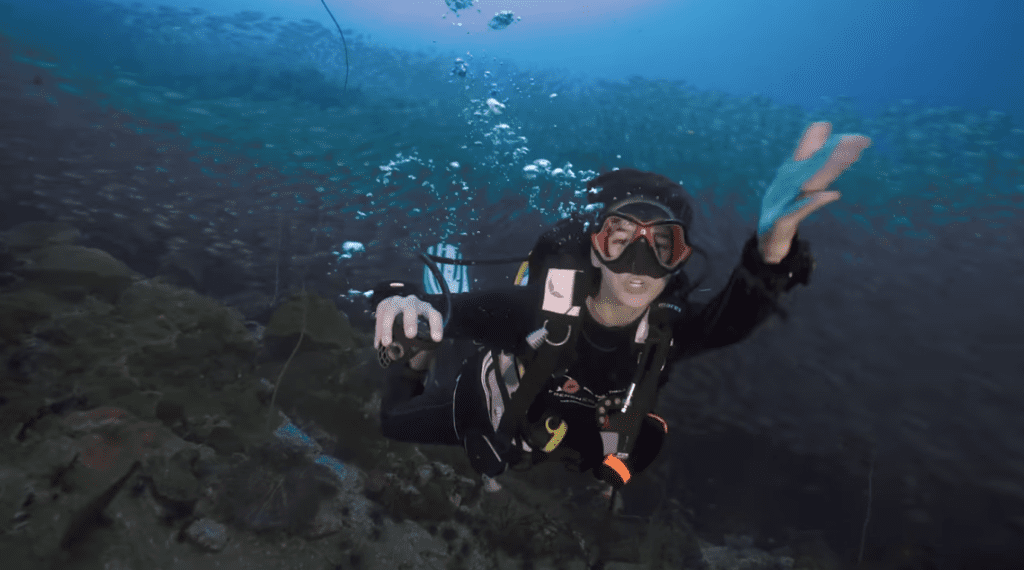
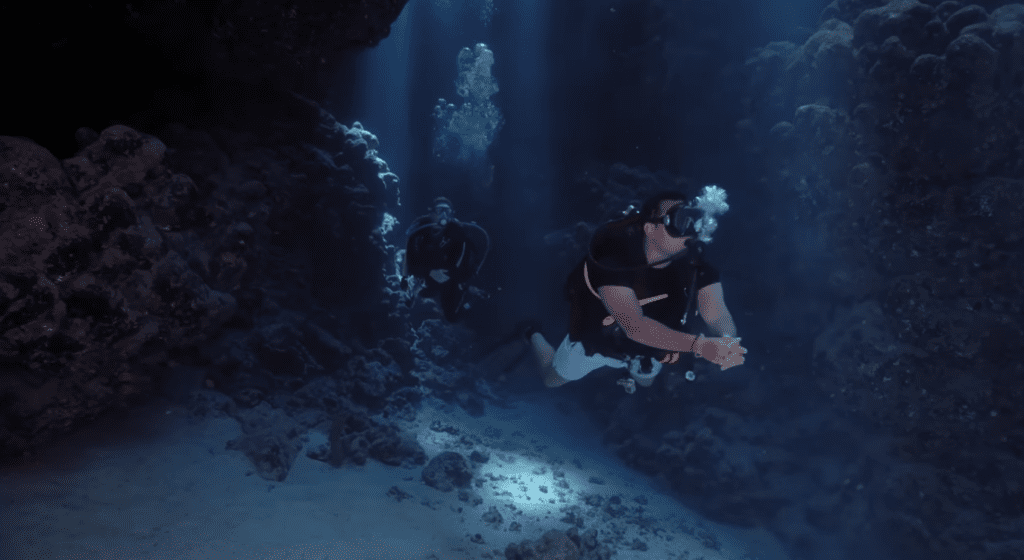
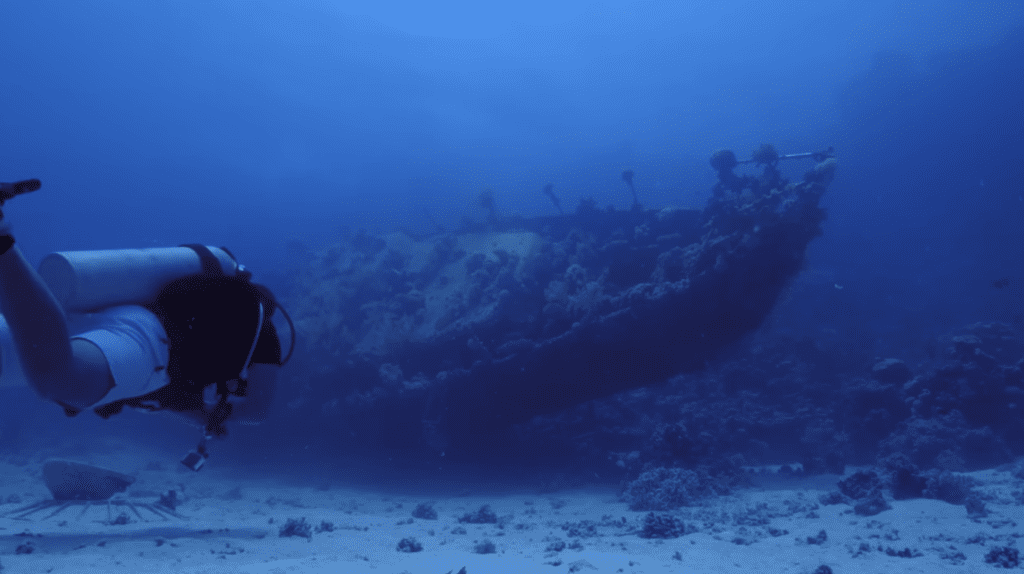
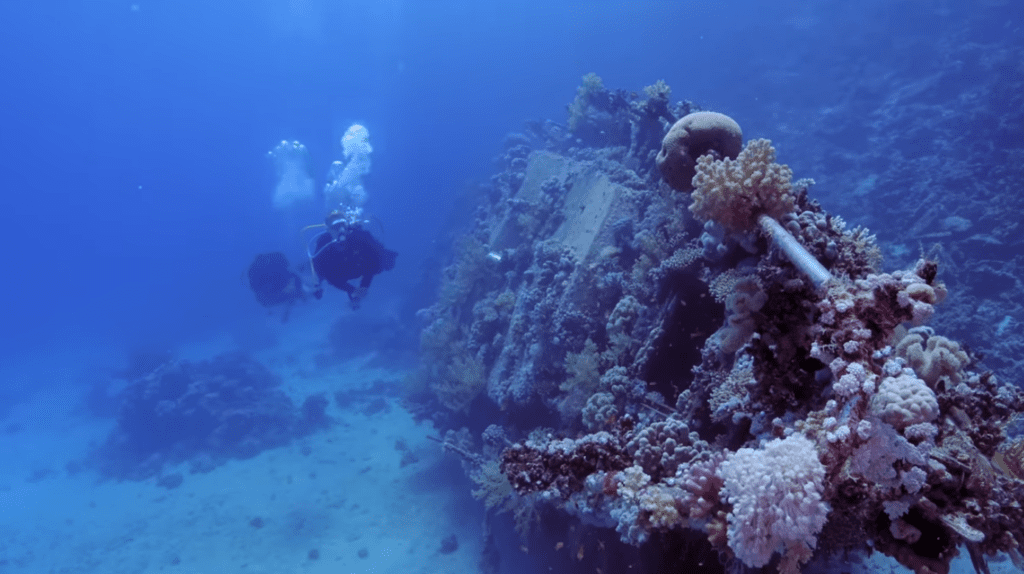
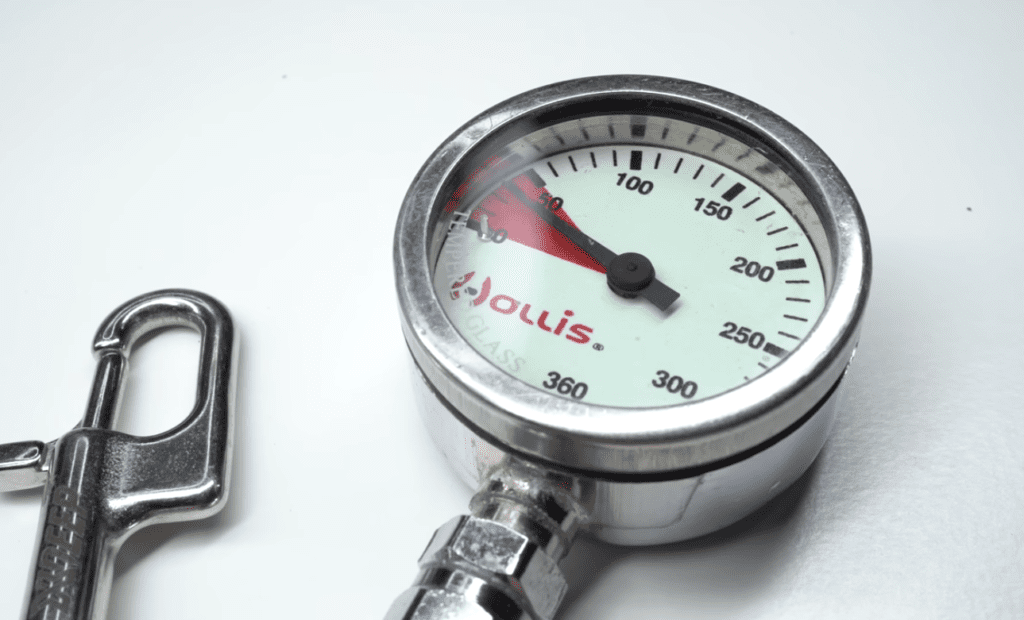
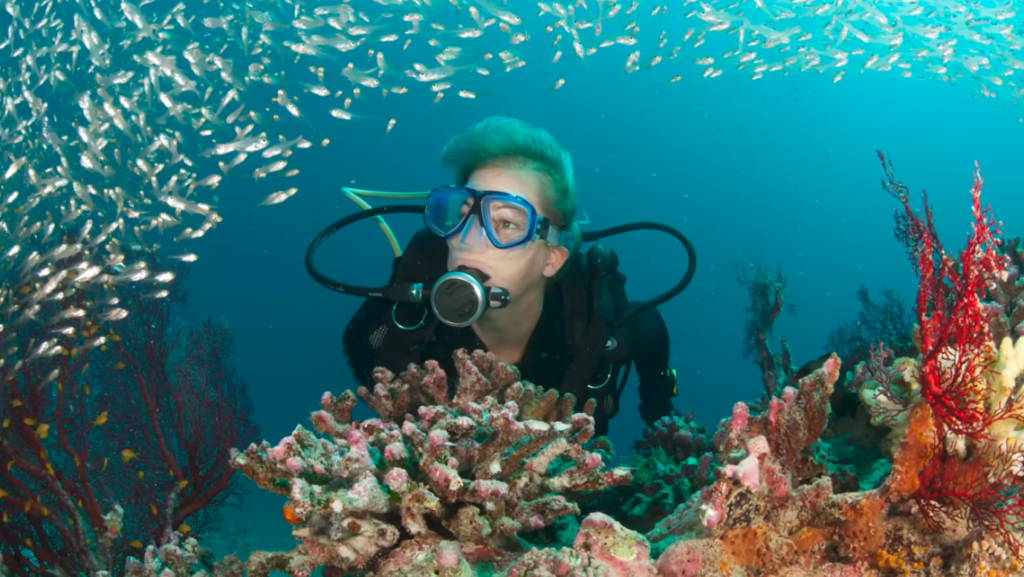
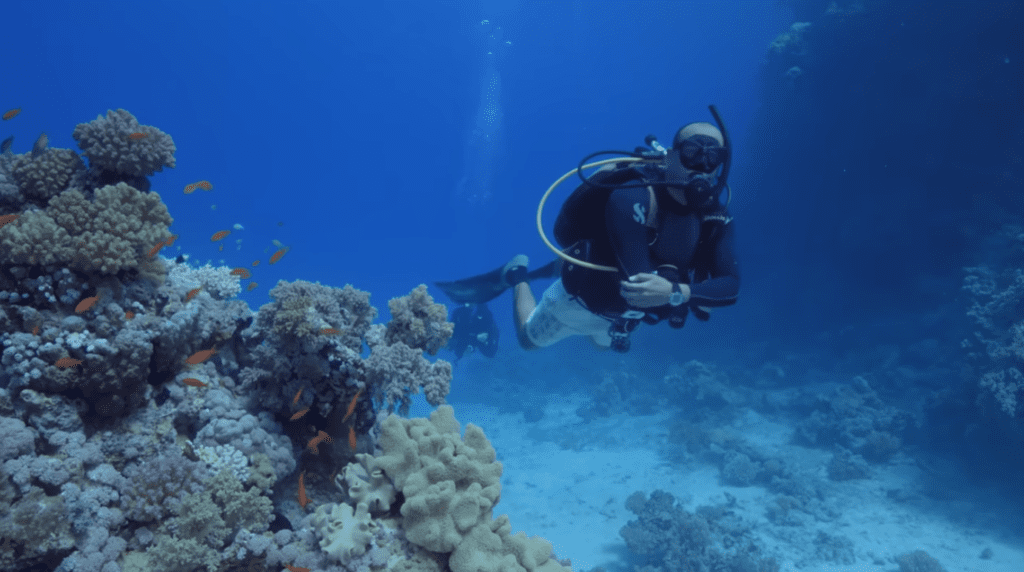
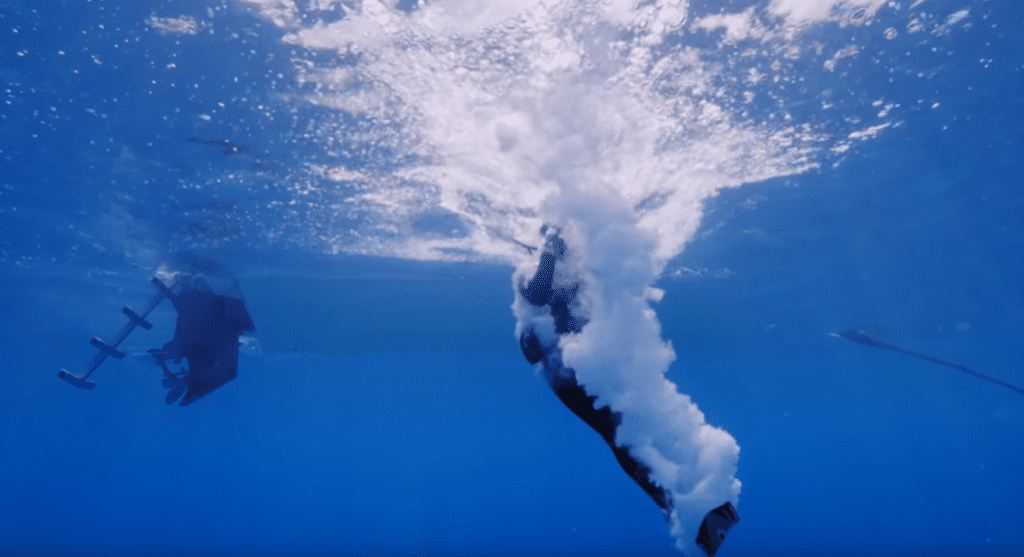








Upright fire extinguishers also fall over if not properly secured. When one fell on my brother’s foot while I was speed-testing the two 200hp mercury outboards and hit a bump in the sea…
I pointed out he should have been wearing shoes and not playing with those things as I signed for the boat. If I put his reply here they would close down the internet.